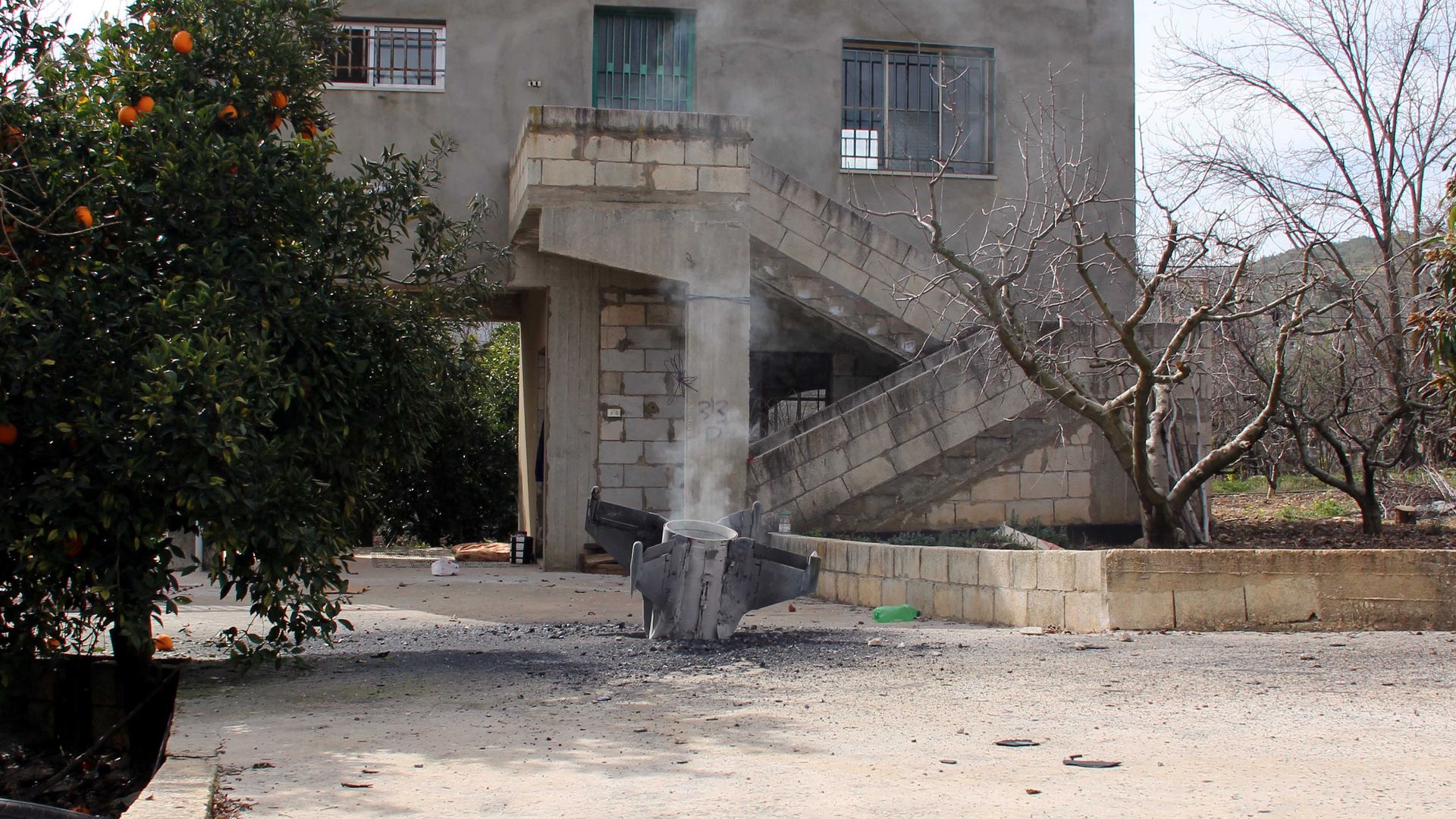Updated Feb 23, 2018 - World
Expert VoicesMoscow exploiting Israeli-Syrian clashes for regional influence
Add Axios as your preferred source to
see more of our stories on Google.

An Israeli missile that landed in a southern Lebanese town near the Syrian border on Feb. 10, 2018. Photo: Ali Dia / AFP / Getty Images
